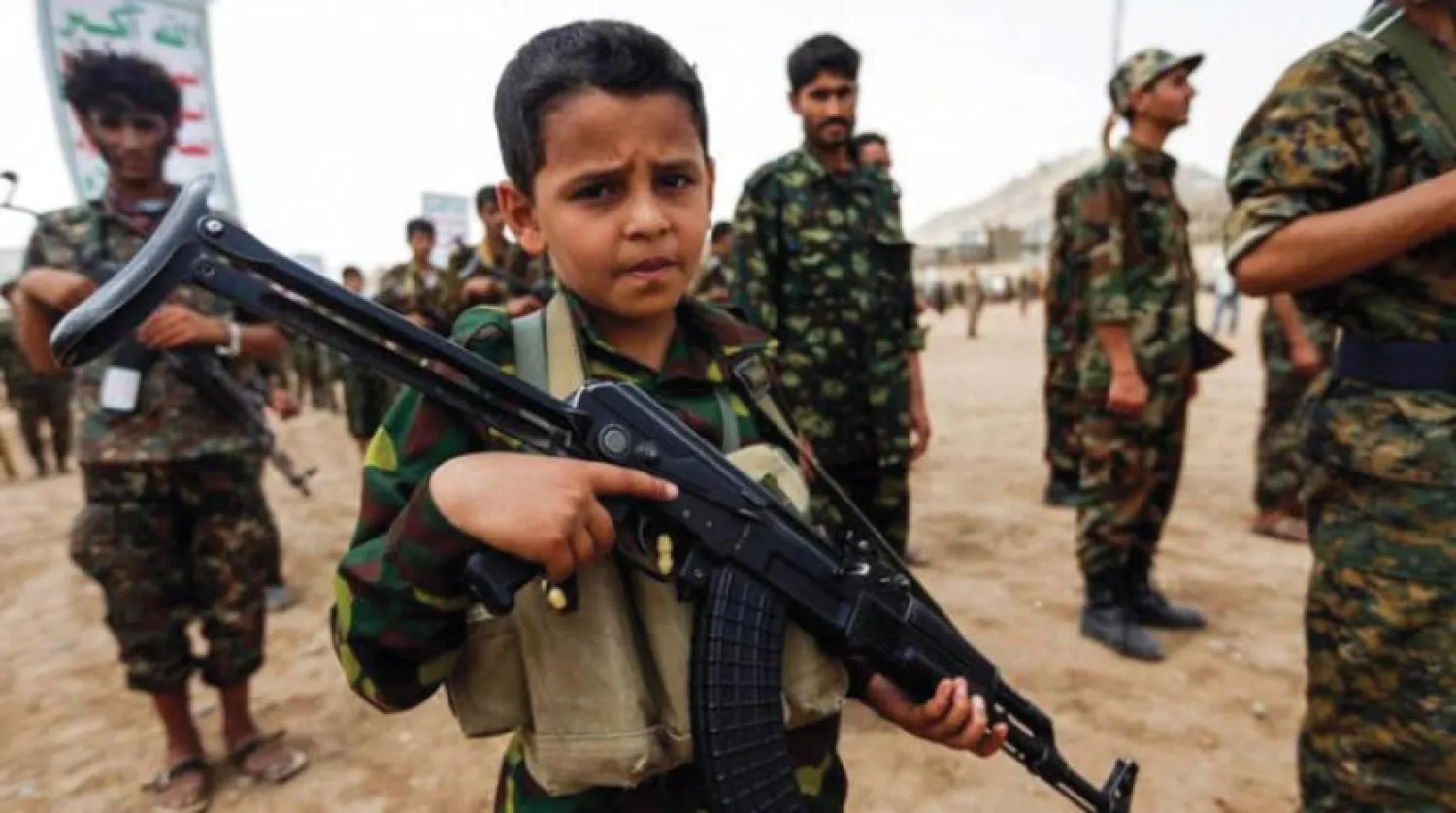The Yemeni Coalition for Monitoring Human Rights Violations, or Rasd Coalition, accused the Iran-backed Houthi militias of committing war crimes for their forced recruitment of children under 15.
In a report, “Children Not Soldiers”, it also accused them of committing serious crimes against children and violating the rules of warfare and human rights law.
The absence of an effective role by the international community and weak local accountability mechanisms have led to the persistence of the phenomenon, it added.
The report showed that Yemeni children have been subjected to widespread violations of their rights that are safeguarded by international conventions. Abuses include being forced to change their beliefs and national identity, recruitment by force, sexual exploitation and other violations that may fall under human trafficking.
The findings show that the Ibb governorate saw the most cases of forced recruitment, with 55 child soldiers, followed by Amran with 46.
During the reporting period, the Rasd Coalition field team documented 248 incidents of recruitment and exploitation of children in ten Yemeni governorates in from August 2022 to January 2023.
The report found that the Houthis were the greatest offenders, with 231 cases.
Mutahar Al-Badhiji, executive director of the Coalition, said the militias increased child recruitment last year even though they had signed an agreement with the United Nations to end this phenomenon by mid-2022.
He slammed the Houthis for having recruited 35 children even after they signed the agreement.
He told Asharq Al-Awsat that the Houthis were keen on recruiting children to make up for the loss of thousands of their fighters over the years.
The report showed that 238 children were recruited through coercive means and ten through intimidation.
Various ways have been used to influence children. Forty-three children were given salaries to join the fighting, twenty-six were lured to join cultural courses and 41 were transported to camps.
Eight children were tricked into being recruited, six were enticed by weapons and three were forced by their families. Seven children were recruited at security checkpoints and 98 others were recruited in unknown circumstances, but the report suspected that economic, media and education factors came into play.
The report found that the largest number of recruits died during fighting. It documented the death of 142 child soldiers and said 82 were still on the field. Thirteen children have returned to their homes, five were detained by other parties and the fate of four is unknown.
The report revealed that the Houthis attract and recruit children through a network of supervisors. The Houthis have dedicated tremendous financial resources to fund this network.
The militias have also deliberately modified school curricula, which has played a decisive role in brainwashing children and pushing them to join military ranks.
Media and propaganda have been used to venerate dead child soldiers, to garner the sympathy of other children and influence them to join the military ranks.
Former child soldiers are treated suspiciously when they return from battle. Instead of being seen as victims, they are stigmatized by their communities and suspected of having committed crimes.
The stigmatization makes it increasingly difficult to integrate them in society.
Asharq Al-Awsat did not obtain data or information from the Yemeni government about child recruitment in its armed forces or about its program to end children recruitment. The Ministry of Human Rights had partnered with the United Nations in the program. Ministry officials didn’t respond to Asharq Al-Awsat's inquiries.









